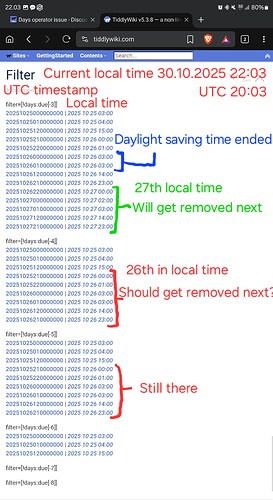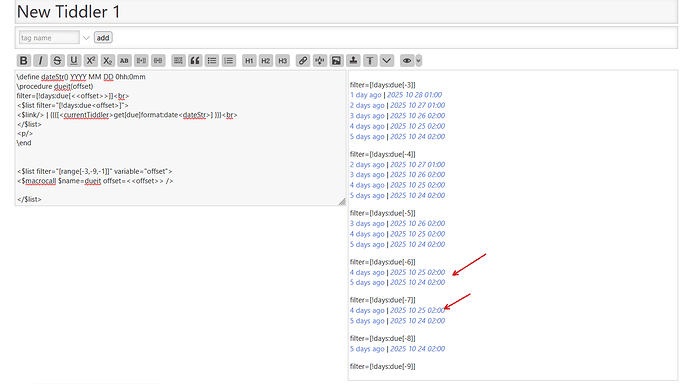I do not really know, where the problem comes from. More experiments needed.
The code for the days filter is at: TiddlyWiki5/core/modules/filters/days.js at master · TiddlyWiki/TiddlyWiki5 · GitHub where you can see, how it is calculated.
IMO the problem here is that the targetTimeStamp = (new Date()).setHours(0,0,0,0) hours value is set to midnight UTC, which may cause problems if the DST changes.
I do not know if it would be better to set the “days detection” to 12:00 noon. (I did some experiments. No change in behaviour.)
There has been an old discussion about the days operator from the programmer who implemented it:
Filter tiddlers by date: today and in the past – That’s probably not helpful with the problem, but may be some content to improve the documentation.
There is something strange going on with the test-data provided. (I am testing at Oct. 31) hence my different ranges.
See screenshot
I think there is a bug. But it’s too late to test in detail. I’ll create a GH issue.

